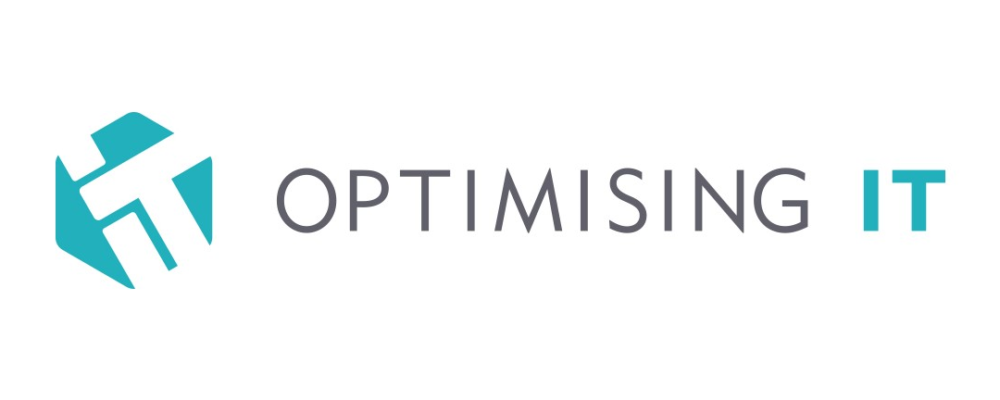Adopt Digital Transformation & Ditch Office Overheads

It’s not surprising that Microsoft Teams has been widely adopted in the last six months. Various industries, including education and business, now require the software to continue operating as normal amid the pandemic.
Businesses are now forced to rethink the need for their currently unoccupied office spaces — many of which may soon become underutilised due to social distancing health and safety measures that will restrict the number of employees in any one place at the same time.
Employees have settled into their “new normal” home office set-ups with great success due to the speedy adoption of cloud-based services for business, including communication and collaboration platforms like Microsoft Teams.
We’ve been using Microsoft Teams since it was released in 2017 — going on to help many other organisations use Teams to improve business productivity, telephony, file sharing and collaboration.
Another driving factor in the rapid adoption of Teams is down to the Teams exploratory licence — offering businesses the opportunity to set up an extended trial of the platform, which has enabled them to use, configure and even start embedding it into their organisations.
Alongside this, in March 2020, Microsoft was quick to release a “free trial” for the Microsoft E1 subscription. This enhanced the productivity of the cloud-based services for business through features including Teams, email, browser-based Office applications, SharePoint and Exchange Online, to name a few.
Why? The idea is to get you familiar with using Teams and Microsoft 365.
What Can I Use Teams For?

You’re likely to know at least some of the things you can do with Microsoft Teams already, and the list of features and integrations keeps growing.
At launch, you could only have nine participants in a video call, that number is now 49! Then there’s pop up chat windows and sharing documents, but this is just the tip of the iceberg.
Here are some of the lesser-known but handy capabilities that you can leverage with Microsoft Teams:
- It runs as a desktop or web application in a browser (or an app on a mobile device).
- It has over 250 integrations with other popular applications, meaning that you can integrate CRM, for example, to have a single view.
- You can invite guests that don’t have a Teams license to meetings.
- You can use it to store and collaborate on your organisation’s documents — no need to search about in the file share back in the office or use a VPN to get to it.
- You can leverage the security built into the Microsoft ecosystem, including multi-factor authentication.
- You can extend Teams to allow dial-in voice conferencing with the correct license type.
- If you add calling capability to your license plan (minimum license level is Microsoft Business 365), you can replace your telephone platform. Specific Teams handsets and conference phones are also available for the office.
- Teams is highly configurable, allowing you to limit what specific personnel can do by embedding functionality such as Forms or SharePoint intranet sites, for example.
- Teams enables you to host online webinars for thousands of users.
When Does the Teams Free License End?
You can expect the Microsoft Teams exploratory licence to end in January 2021, though it’s worth noting most Microsoft 365 plans include Teams as standard.
The free E1 trial will end after six months of using it. This means that if you started using it in June, it will expire in November, and you’ll need to either stop using Teams or purchase a suitable subscription to then assign licenses to your users.
What Happens When the Trial License Ends?
Well, for a start, Teams will no longer function for you. Also, any chat contents or data you have stored will be removed after 30 days.
What Microsoft Teams Licensing Options Should I Choose?
It depends on how much you currently use or want to use in the Microsoft 365 cloud ecosystem. There’s a vast suite of cloud-based products that is continually evolving with new features each day.
The Microsoft cloud ecosystem could provide your entire IT and telephone requirements, but more on that in another post. In the meantime, here are some use cases that can help identify what license you may need:
Case 1 – You Don’t Currently Have Any Microsoft 365 Plans
If you fit into this category, you’ll need a subscription that gives you Teams (at least) so that you can use and download it to your device(s).
We say “at least” because even the base version of Microsoft 365 that does this has much more capability and a considerable amount of value to add — including email and Microsoft cloud storage called OneDrive.
If you’ve less than 300 users in your organisation (and aren’t a charity or a school), Microsoft Business Essentials is the best option.
It’s £3.80 per user per month, based on you signing up to the number of licenses you need for 12 months. Or if you want flexibility, you can pay month-by-month on this license, but expect to pay more for the privilege.
If you’ve over 300 users, then the Microsoft 365 E1 plan (E for “enterprise”) is the license you need. It’s £6.00 per user per month for an annual commitment with no monthly payment option available.
Case 2 – You Have Existing Microsoft 365 Plans
Are you already using Microsoft 365 Business (formerly known as Office 365 Business Premium) or a Microsoft Enterprise plan? Then you already have the license you need!
It seems crazy that we are writing this part, but we know of many organisations that have a large Microsoft 365 subscription and simply close Teams in the morning and don’t use it.
In Summary

Teams has become the collaboration tool of choice for instant messaging, voice calls, video calls, meetings and the ability to securely store and share files both inside and, if required, outside of your organisation.
Teams is also helping businesses to cut expensive overheads in the form of office rent and maintenance costs by empowering more employees to work remotely.
If you already have a Microsoft 365 subscription, then you can enjoy the benefits of Teams without any change in your current subscription.
Suppose you have been making use of the current free trial. In that case, this will soon come to an end, which means you need to make a decision between keeping Teams, purchasing the correct subscription for your organisation requirements or ceasing using Teams all together (don’t forget you’ll also lose your chat data after 30 days).
Next Steps
Still not quite sure which license option is the best value for you? Optimising IT’s consultative approach means we understand how you want to use your Microsoft plan today, but we also add value by helping you identify the benefits it can deliver tomorrow — future-proofing your investment in the right platform for you.
If you need help with choosing the right plan, get in touch today, or call (0)1242 505 470.
Why Buy through Optimising IT?
As one of the largest Microsoft resellers in the UK, Optimising IT can offer unparalleled knowledge, capability and value with your Microsoft 365 license requirements by:
- Helping you to identify the correct license mix to suit your organisation needs without overselling features.
- Allowing you to extract the best value from your license spend.
- Providing annual committed pricing rates on a monthly term — potentially saving you thousands of pounds in license overspend.
- Offering free IT Consultancy to help maximise your Microsoft 365 value.
Free IT Consultancy
As a certified Microsoft 365 consultant and value-added reseller, Optimising IT enhances the value of your Microsoft subscription spend with FREE IT Consultancy every month with one of our highly experienced IT Consultants.
It doesn’t have to be about Microsoft 365 implementation either — from networking to security, Enterprise storage and those tricky problems that just won’t go away, you can ask us to help with anything.
Get in touch today by filling out a contact form or calling us directly on (0)1242 505 470.













